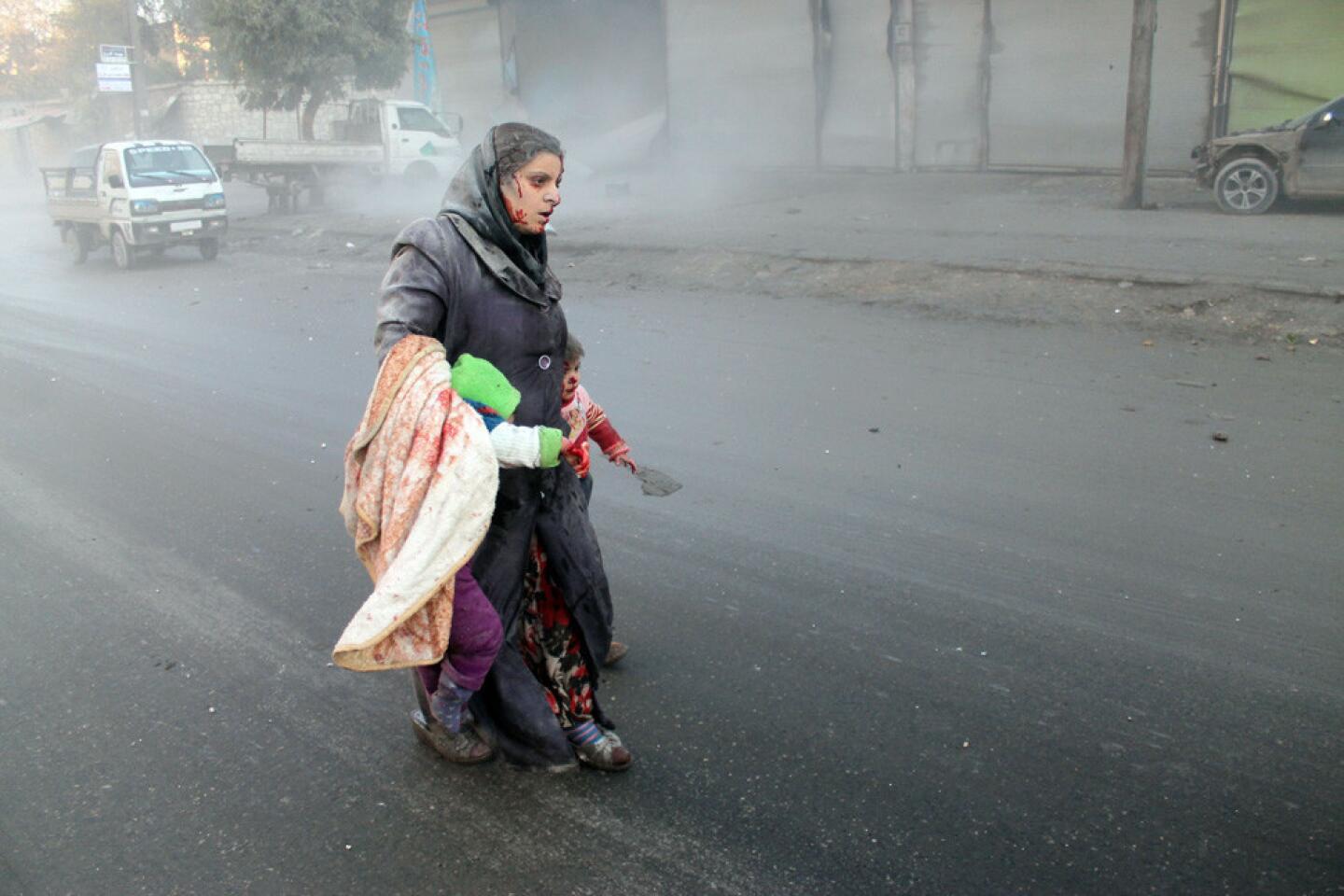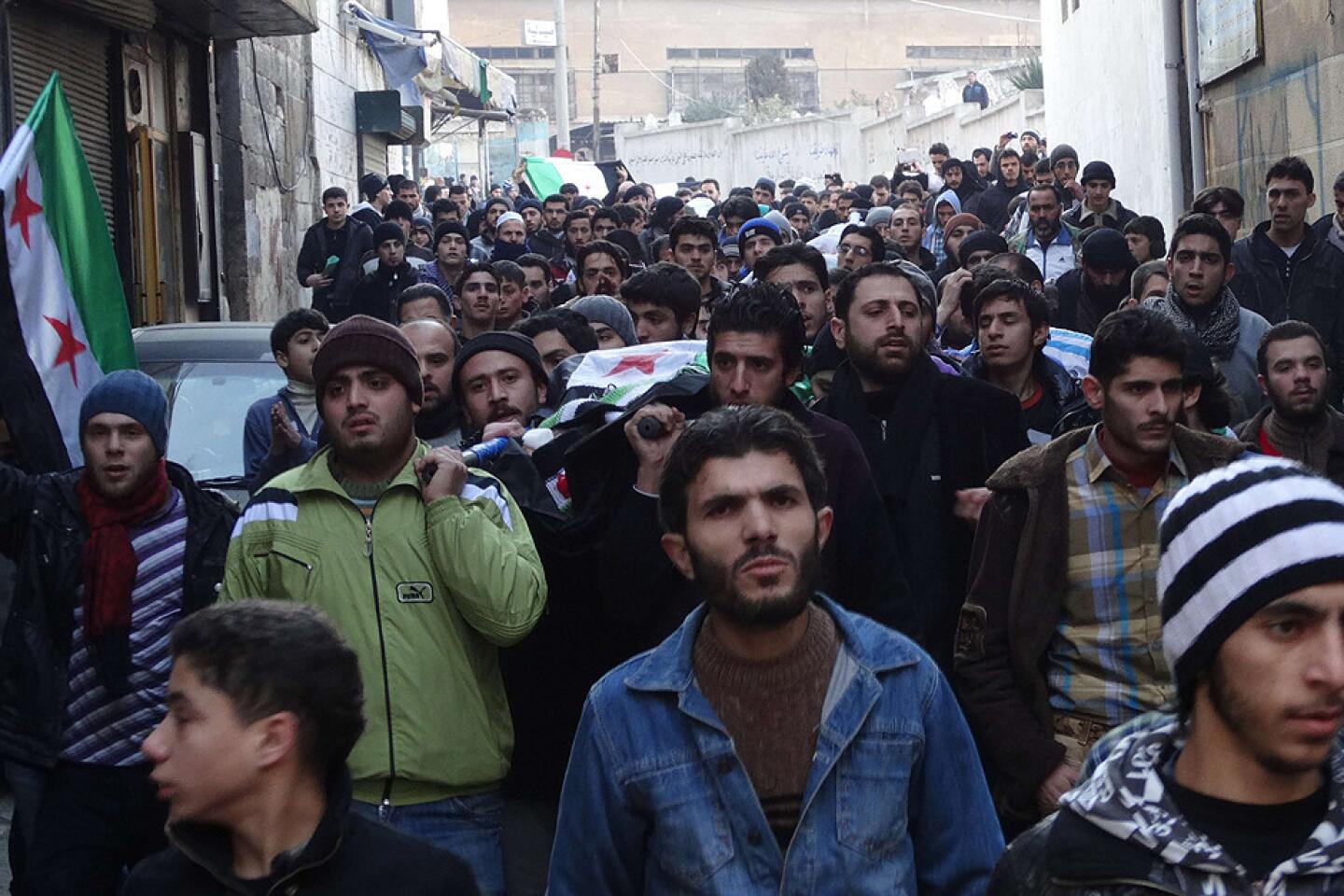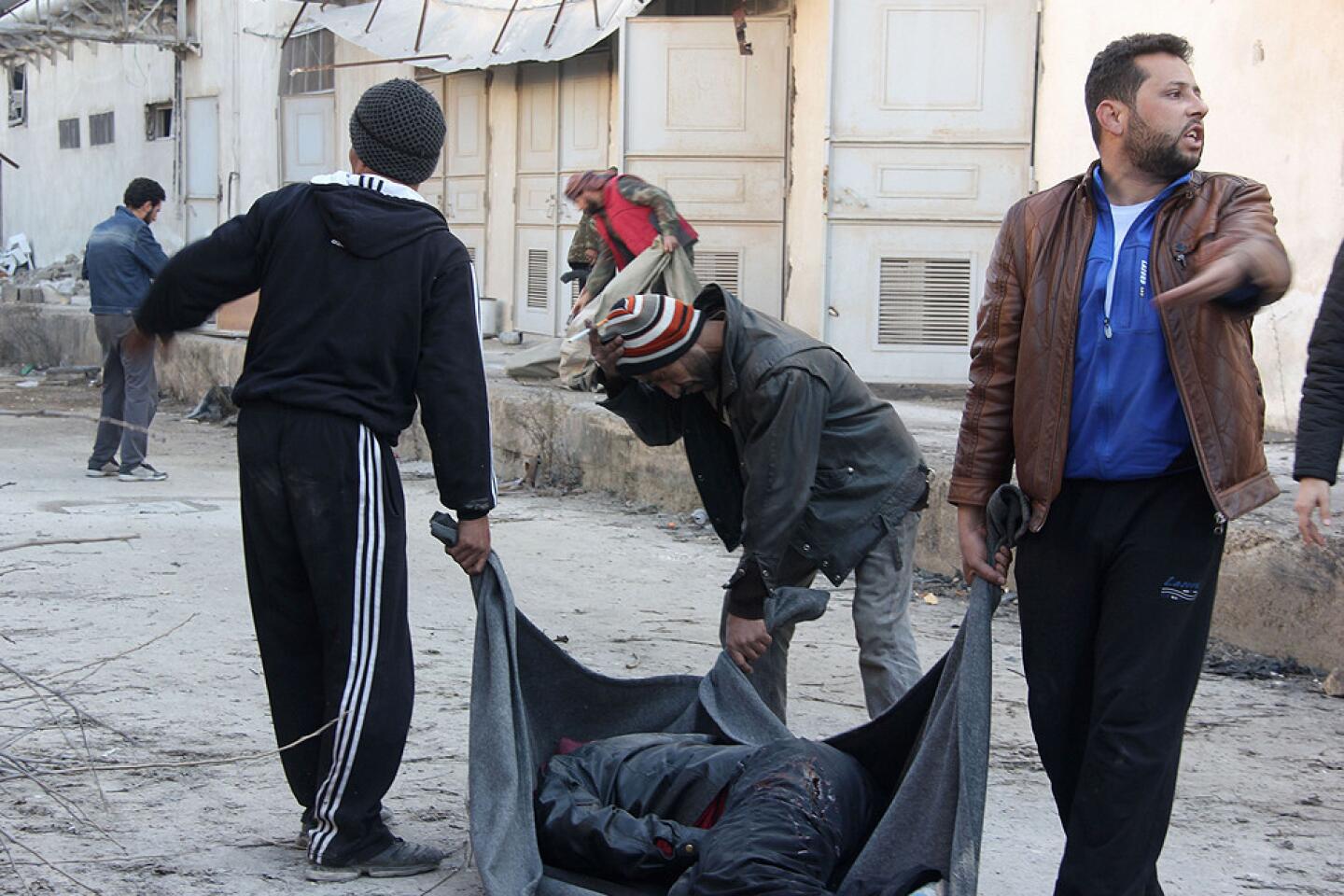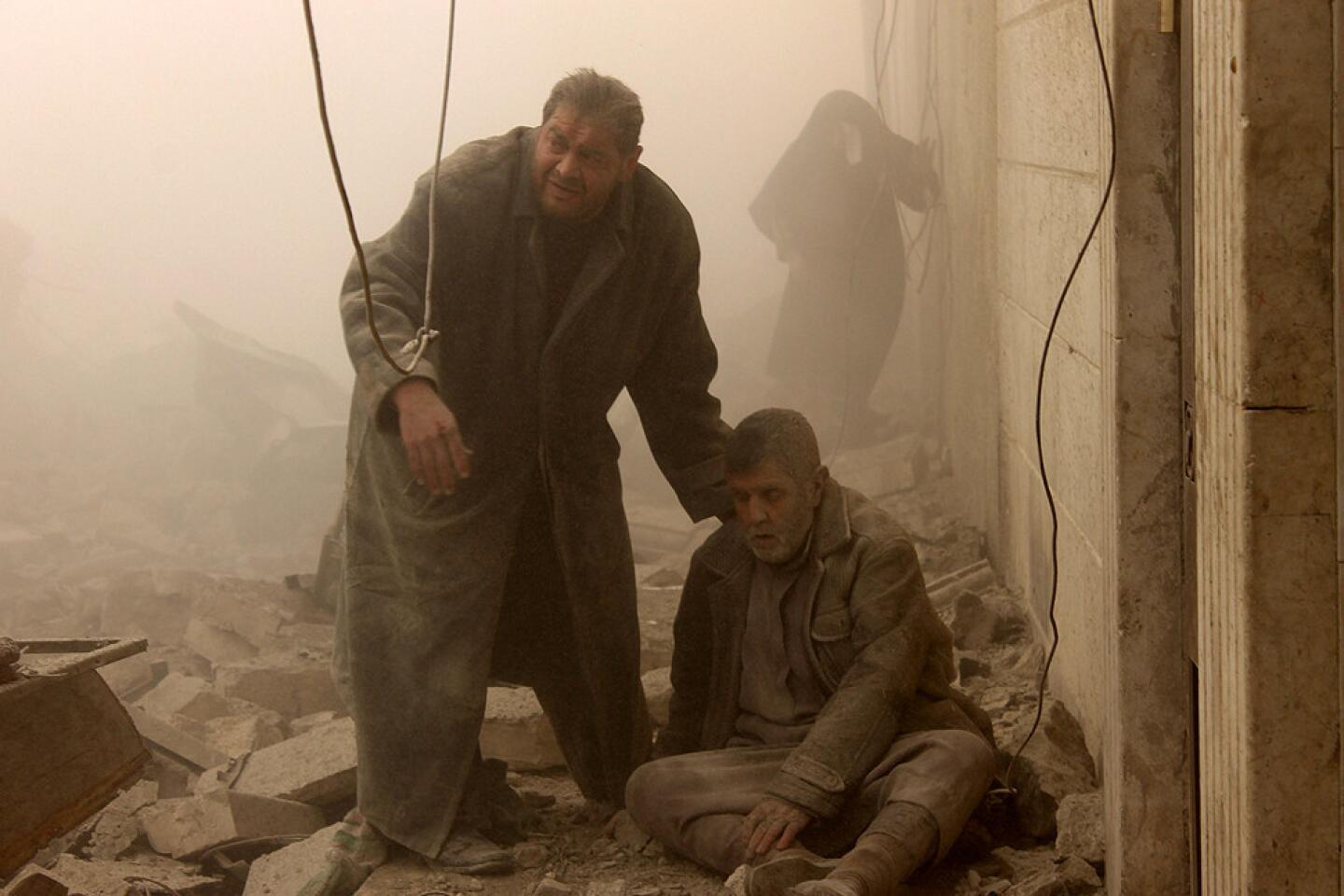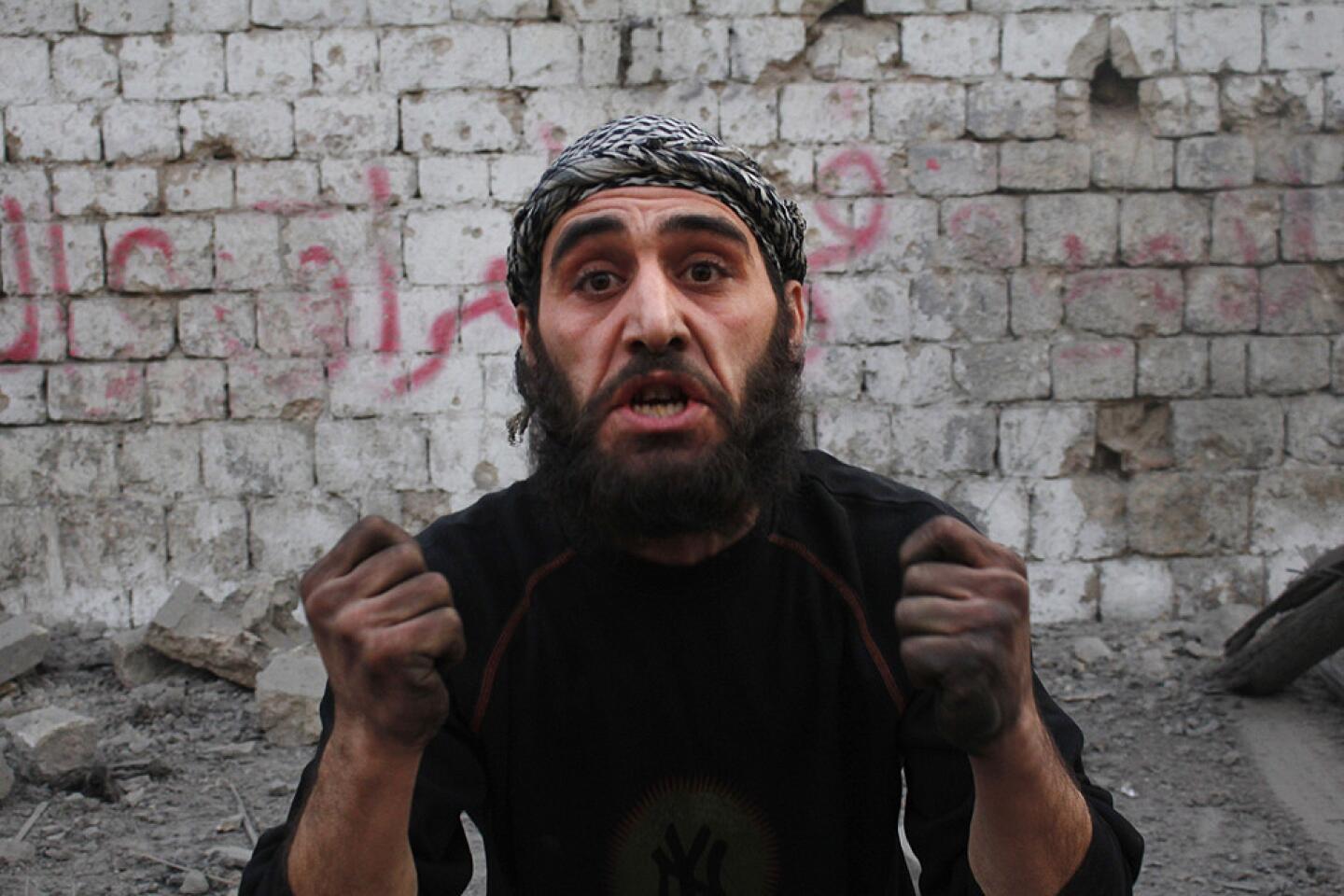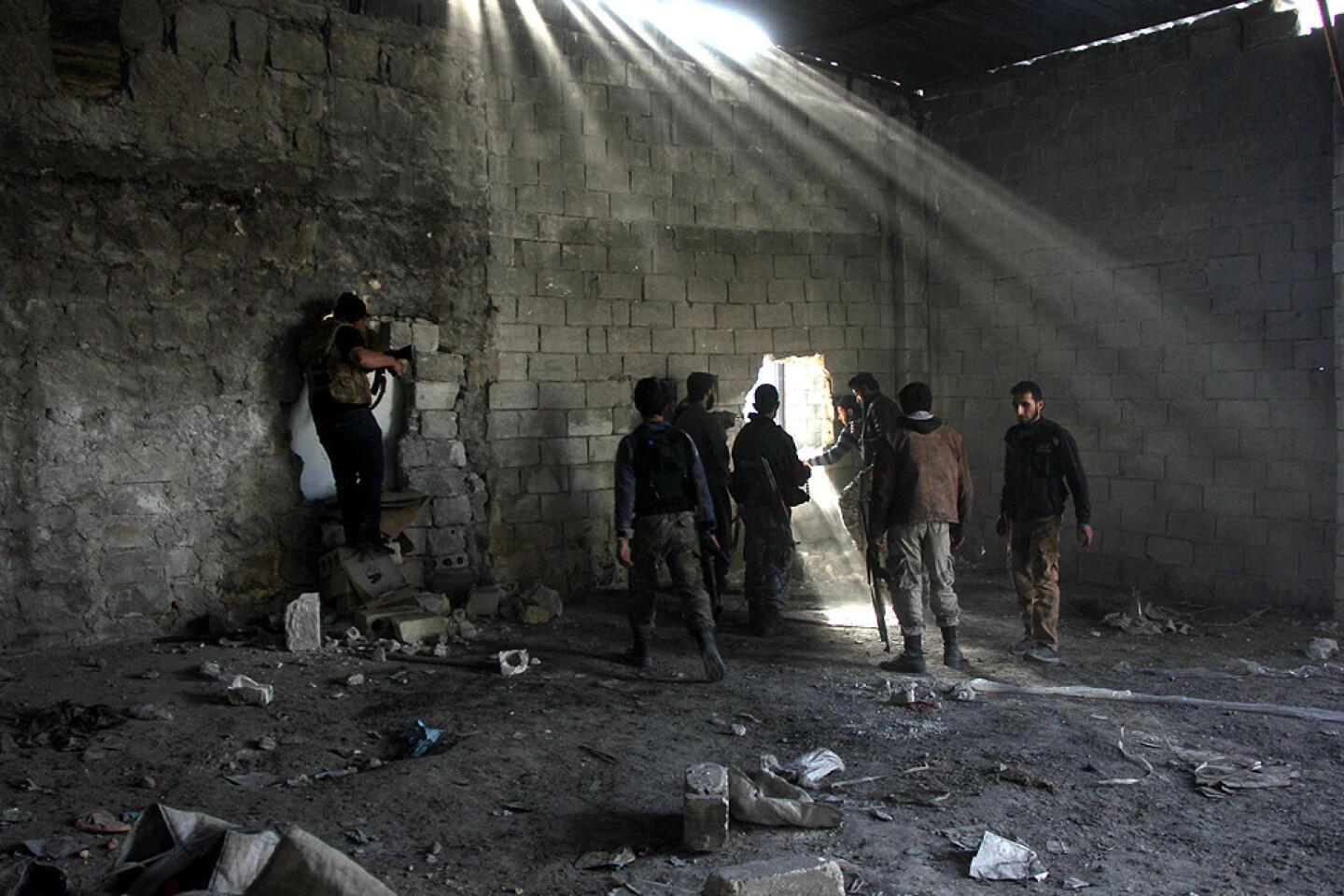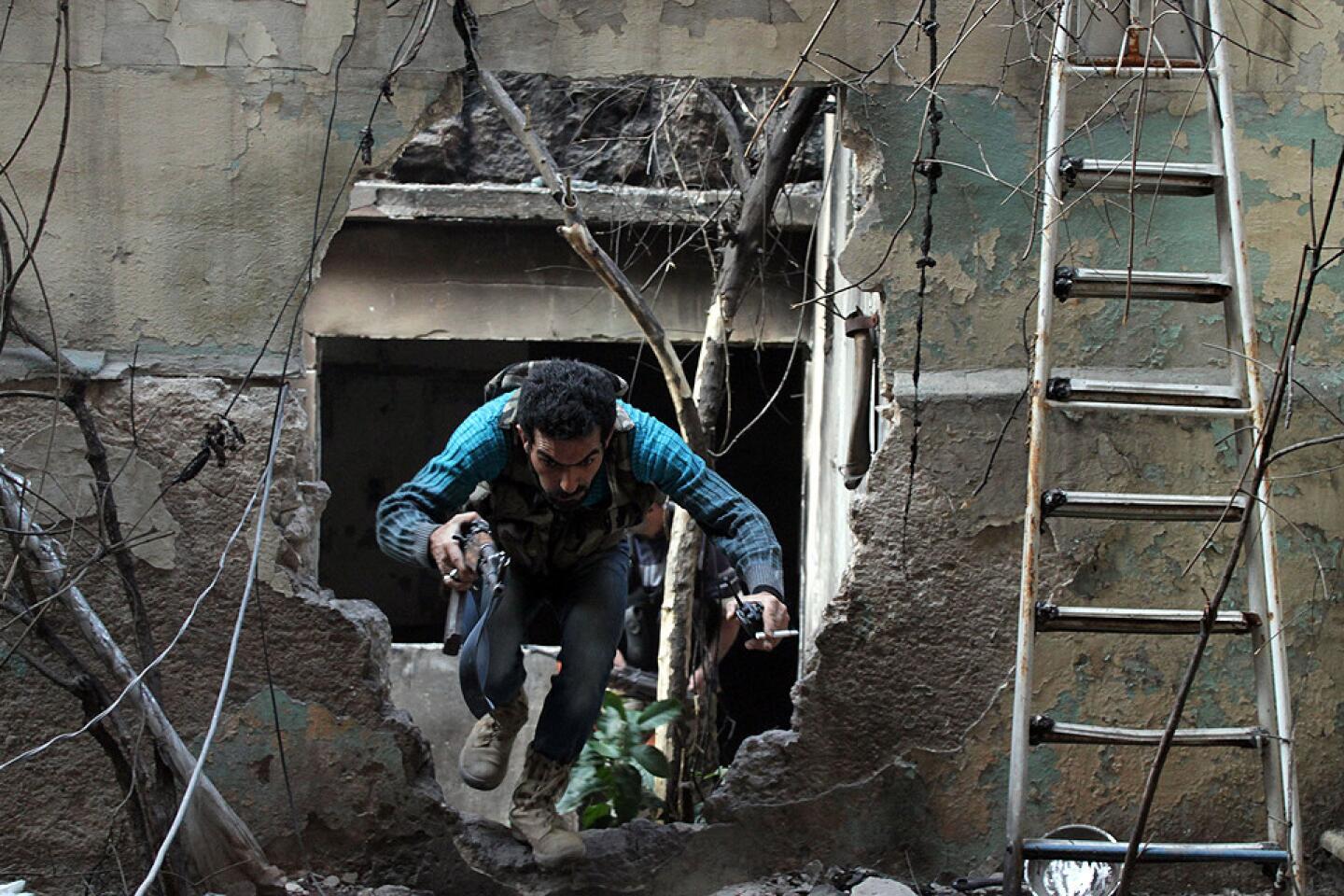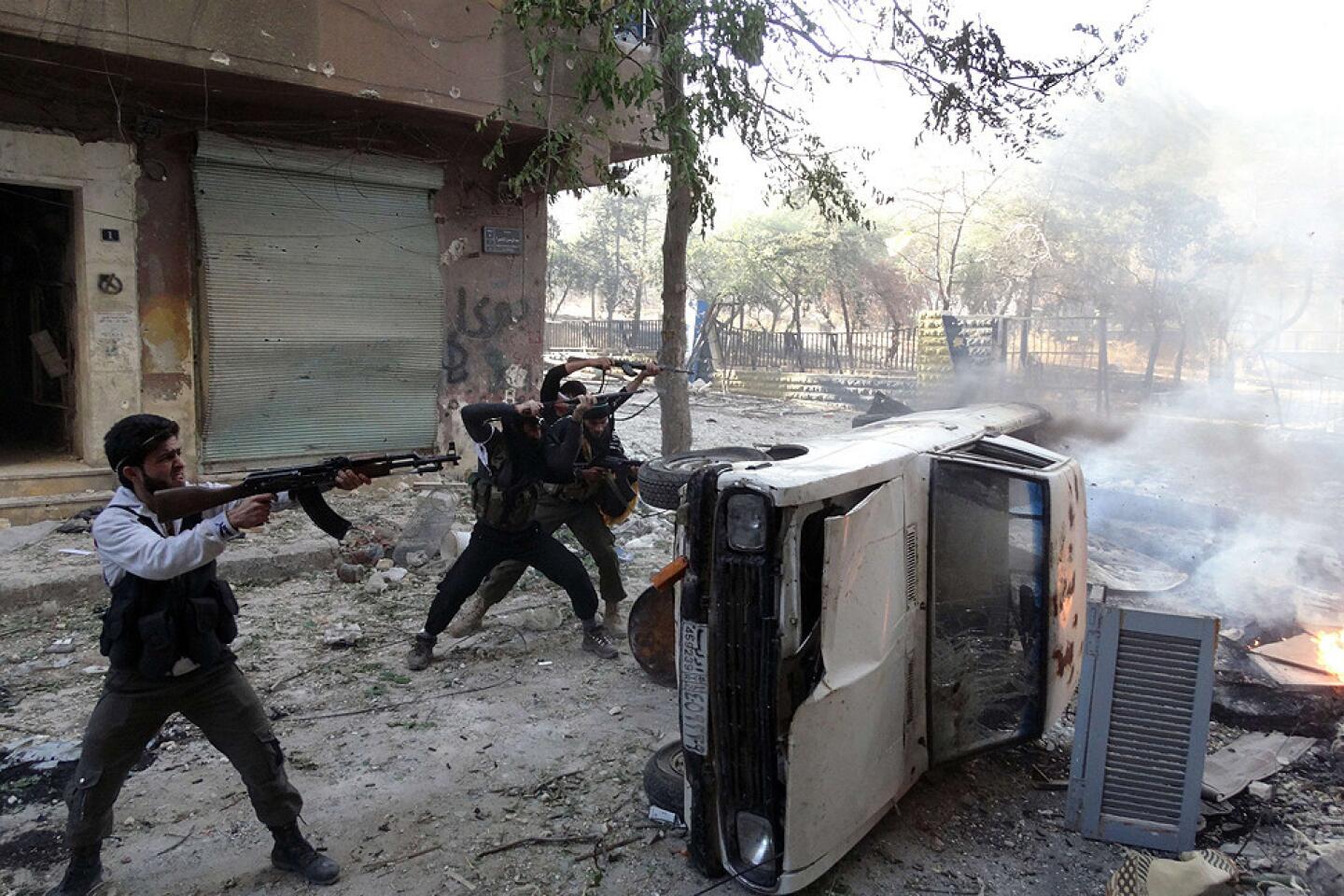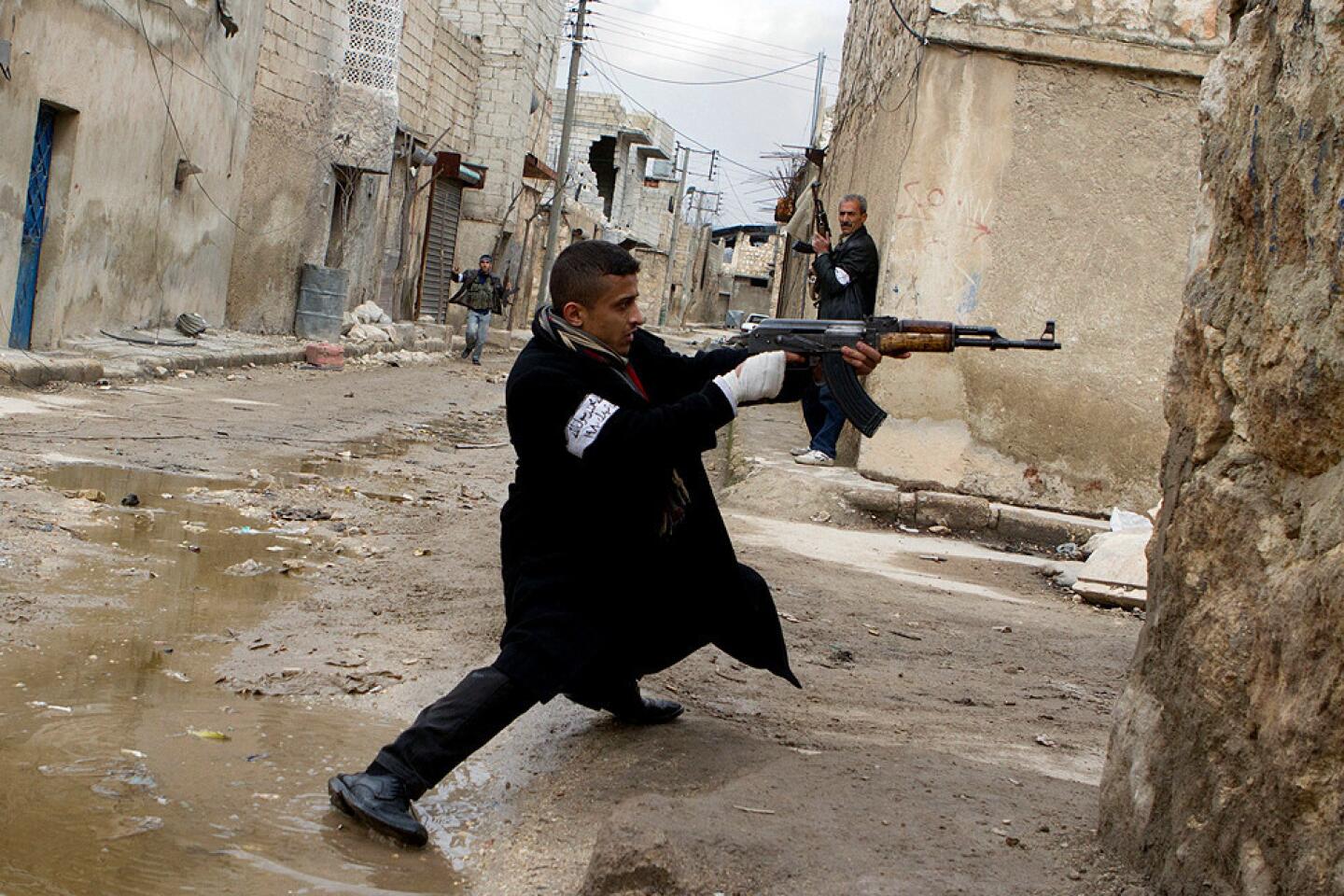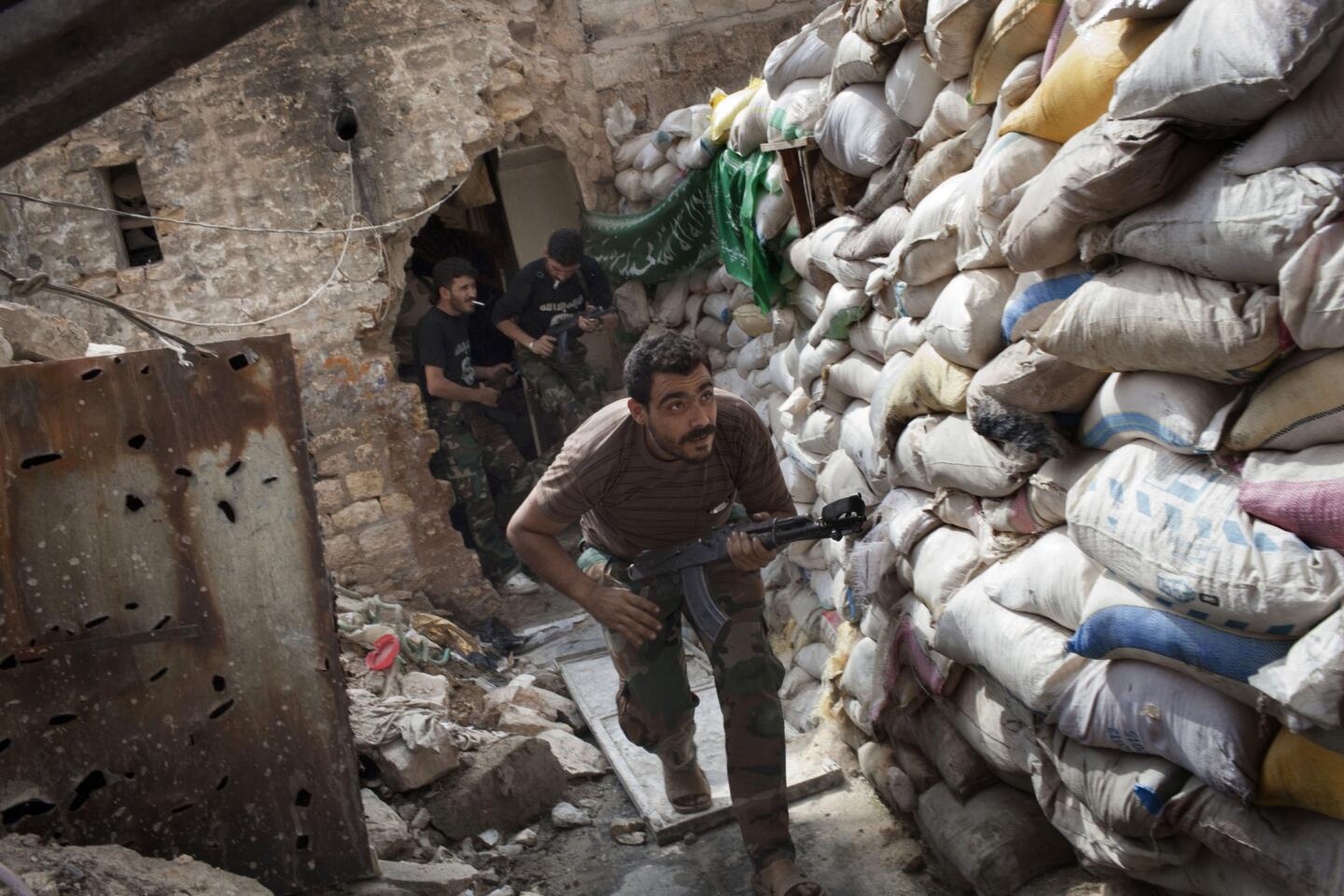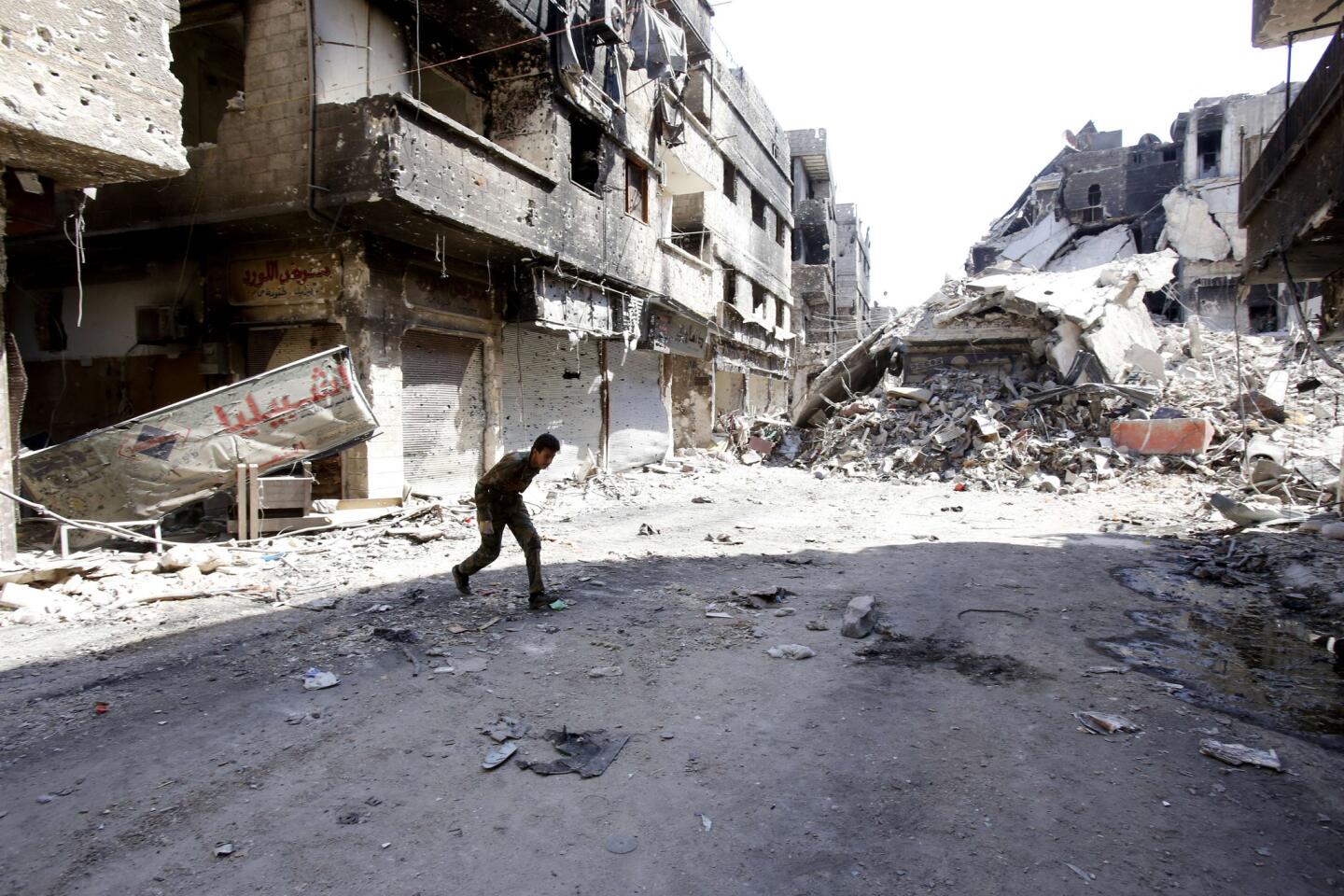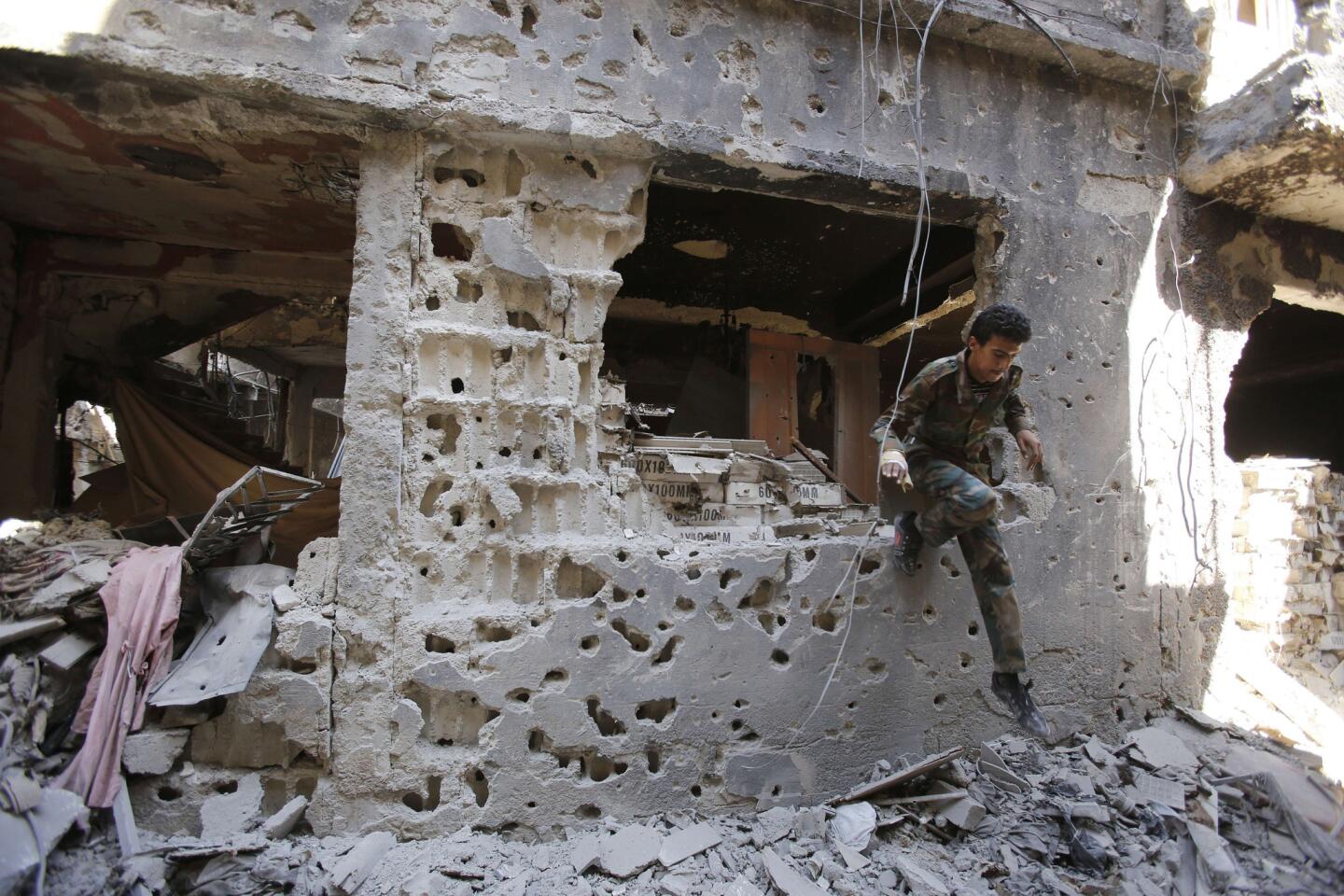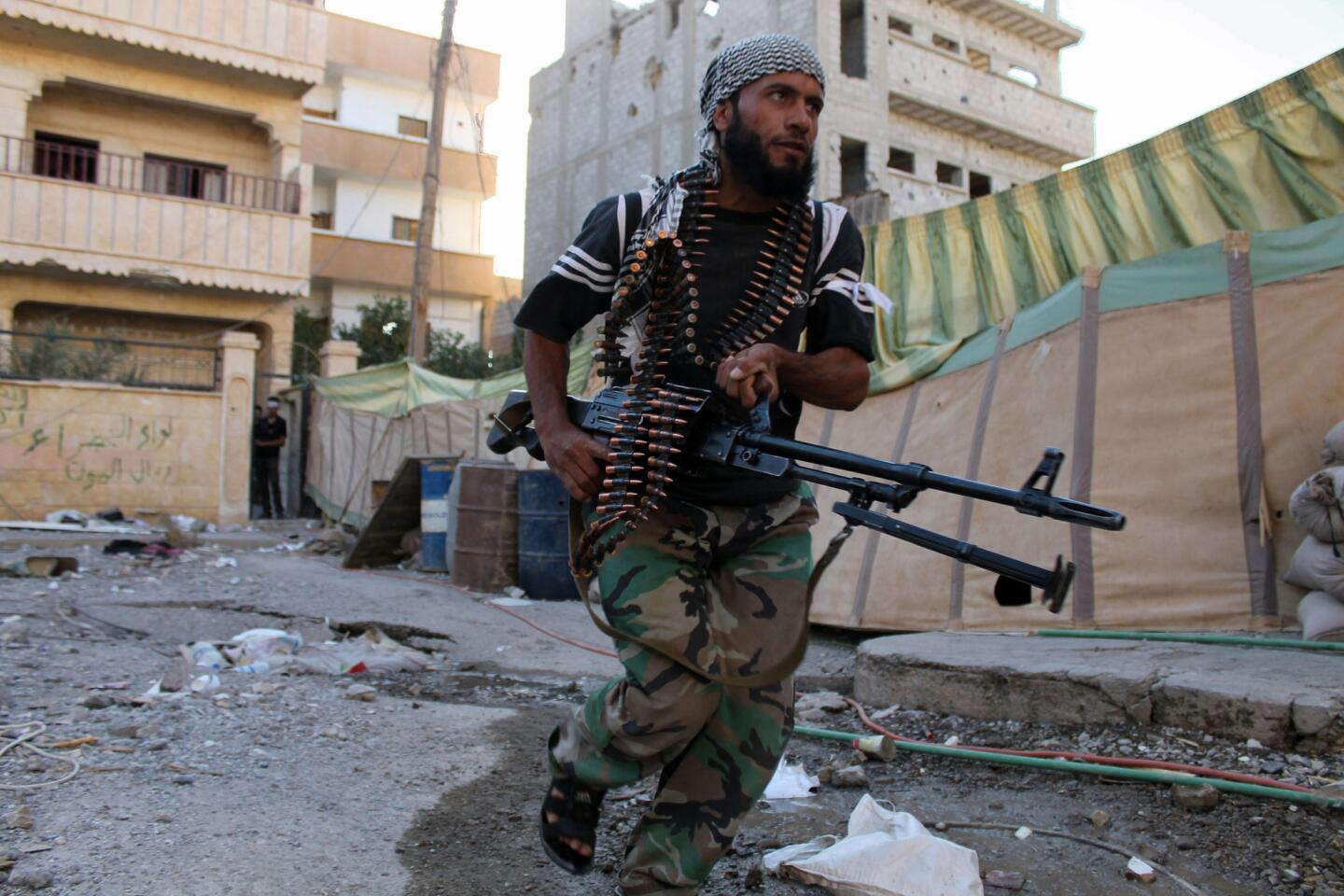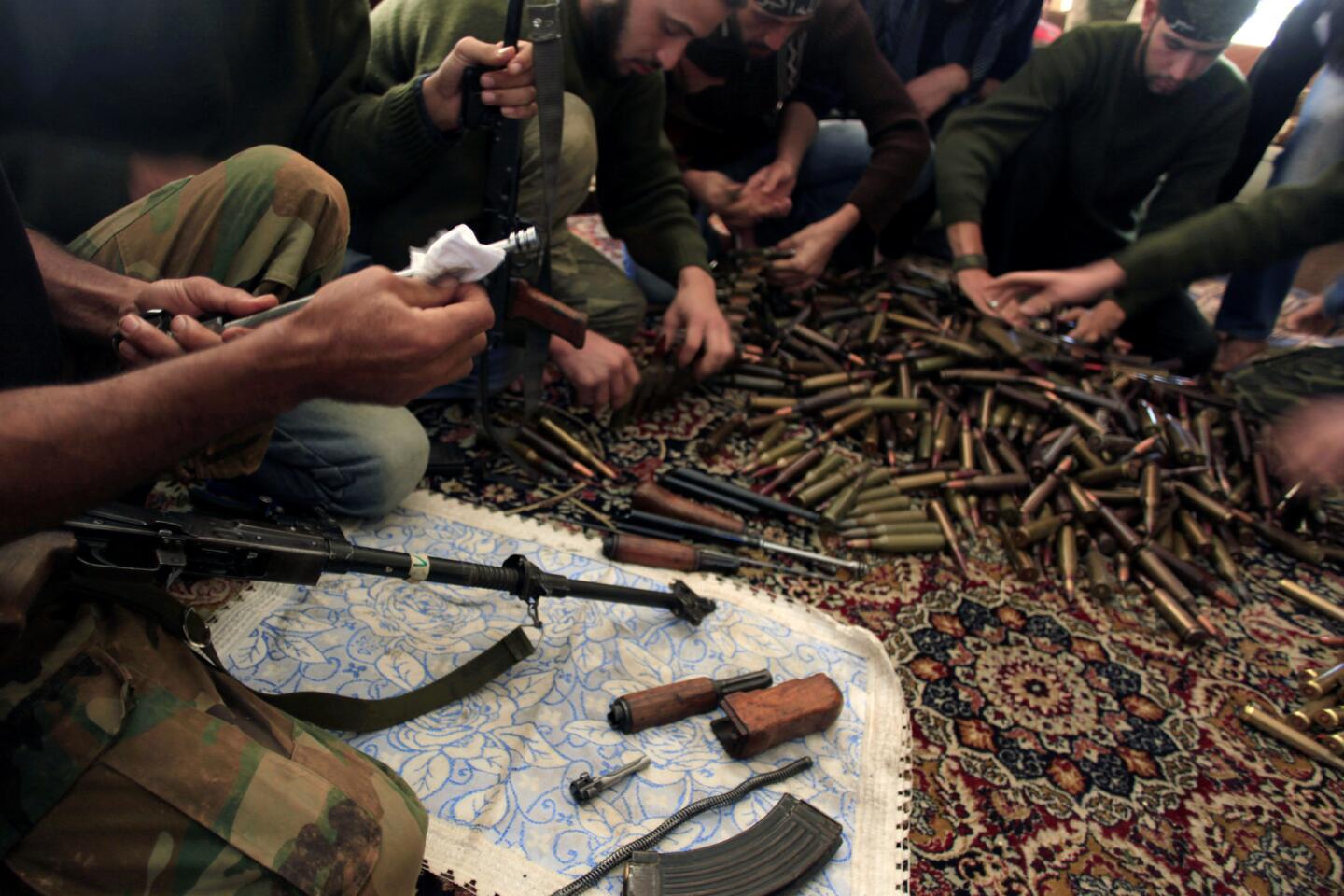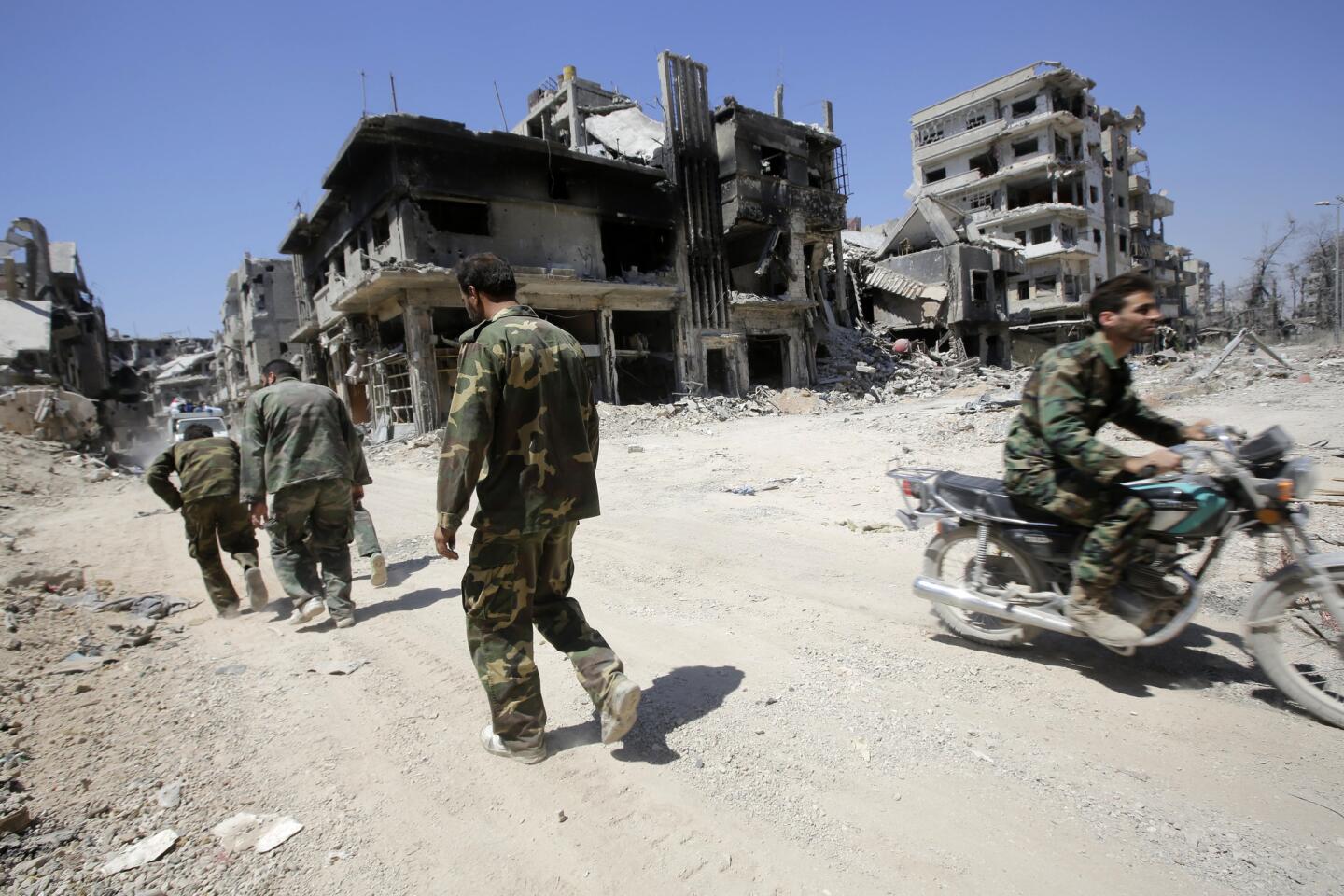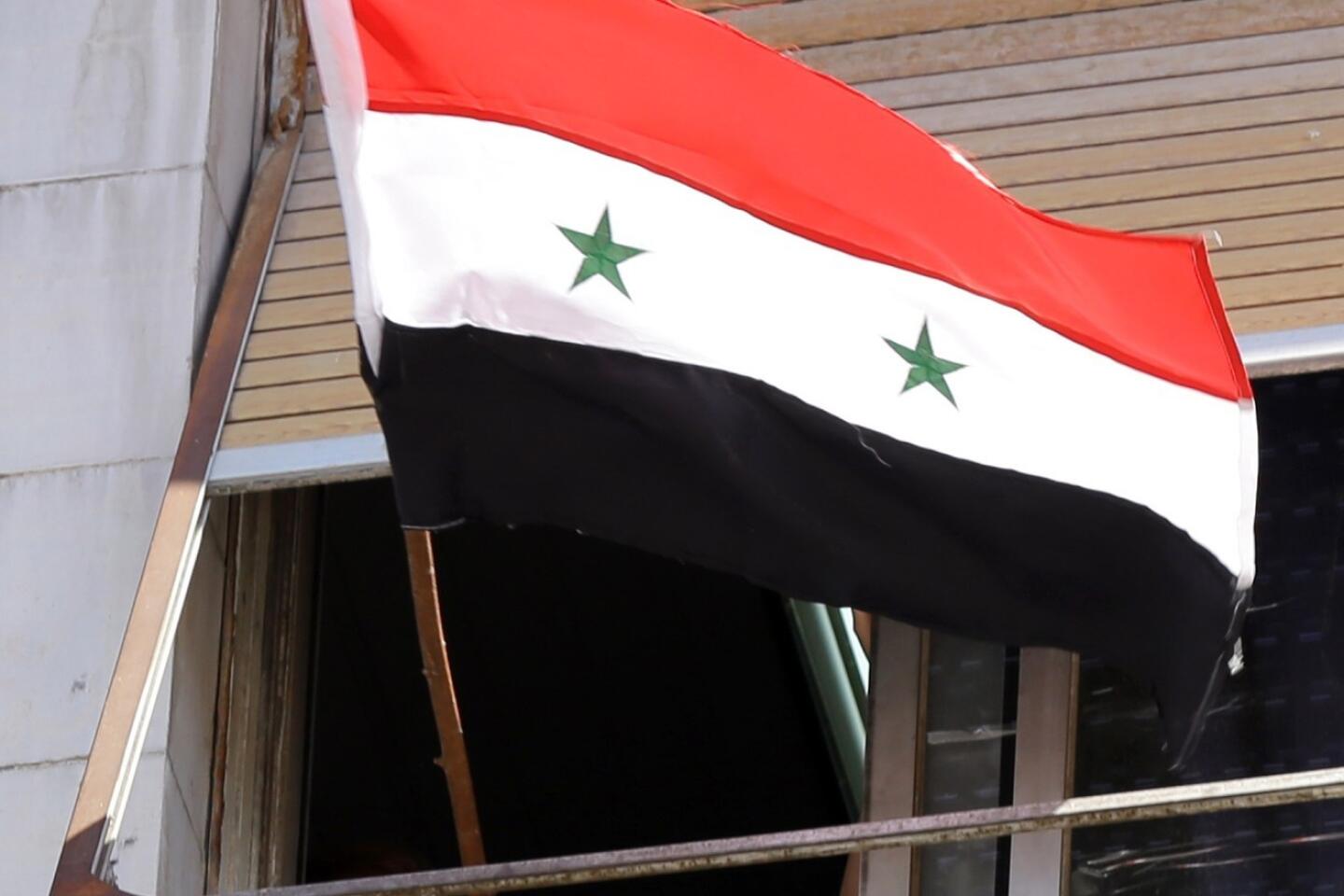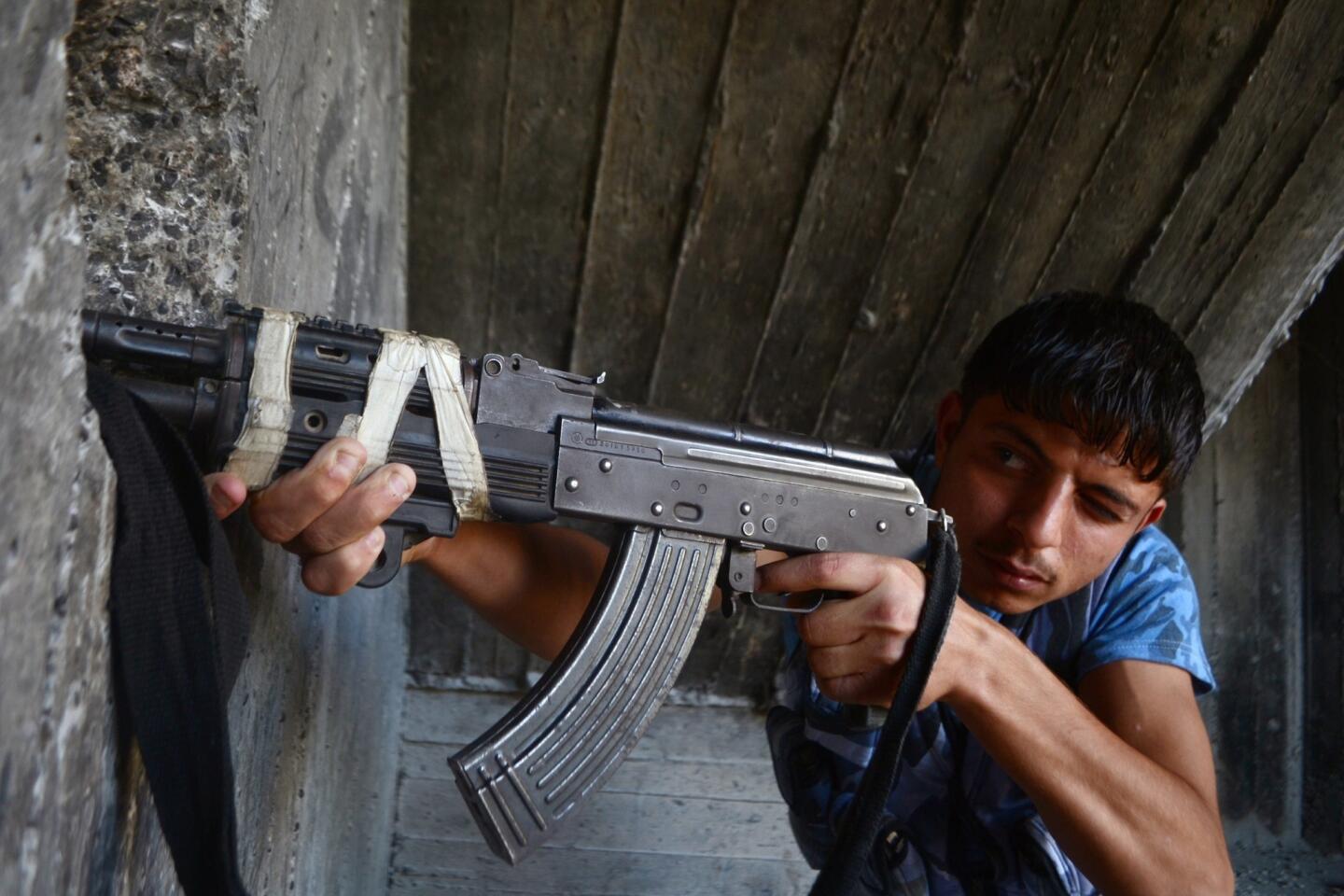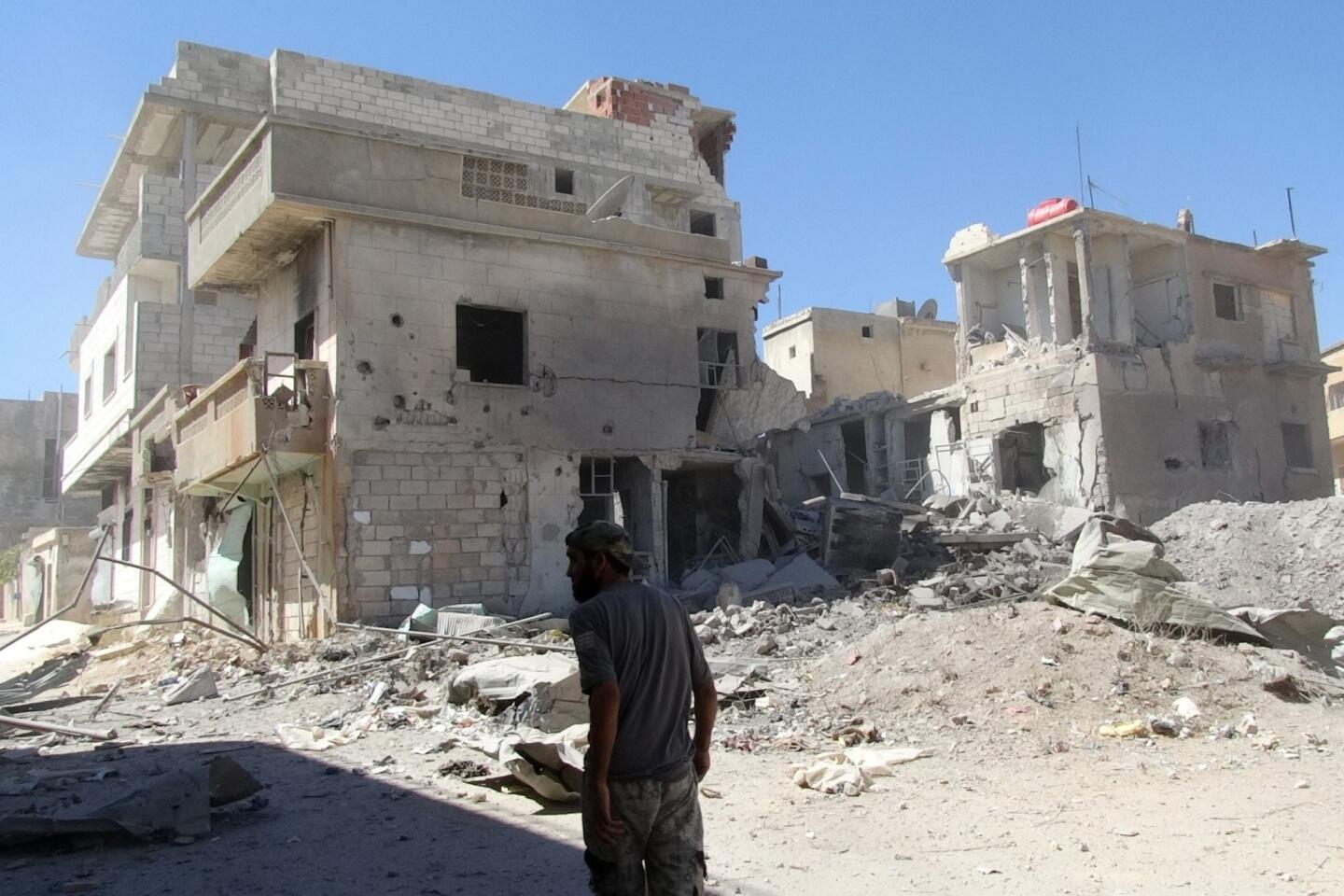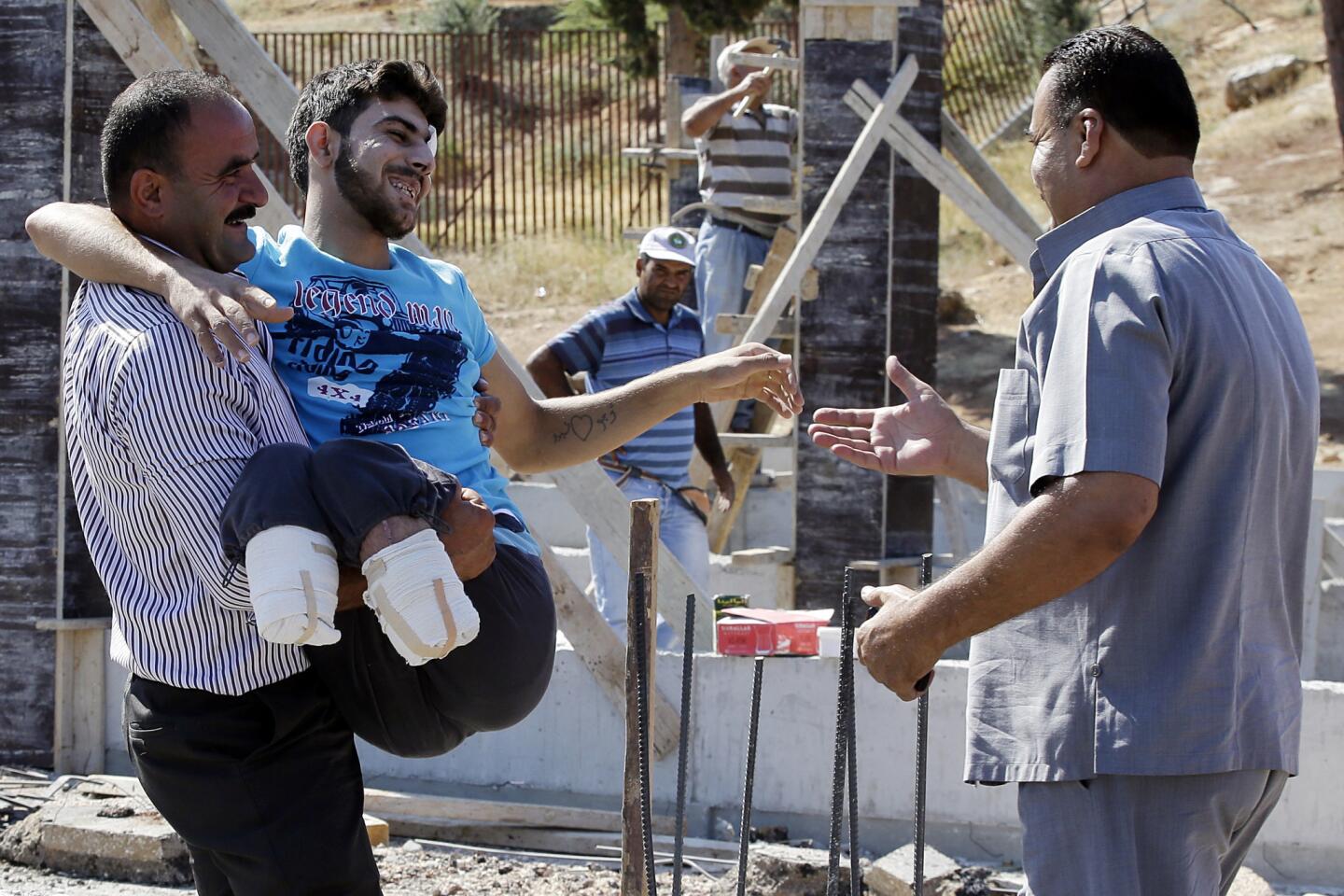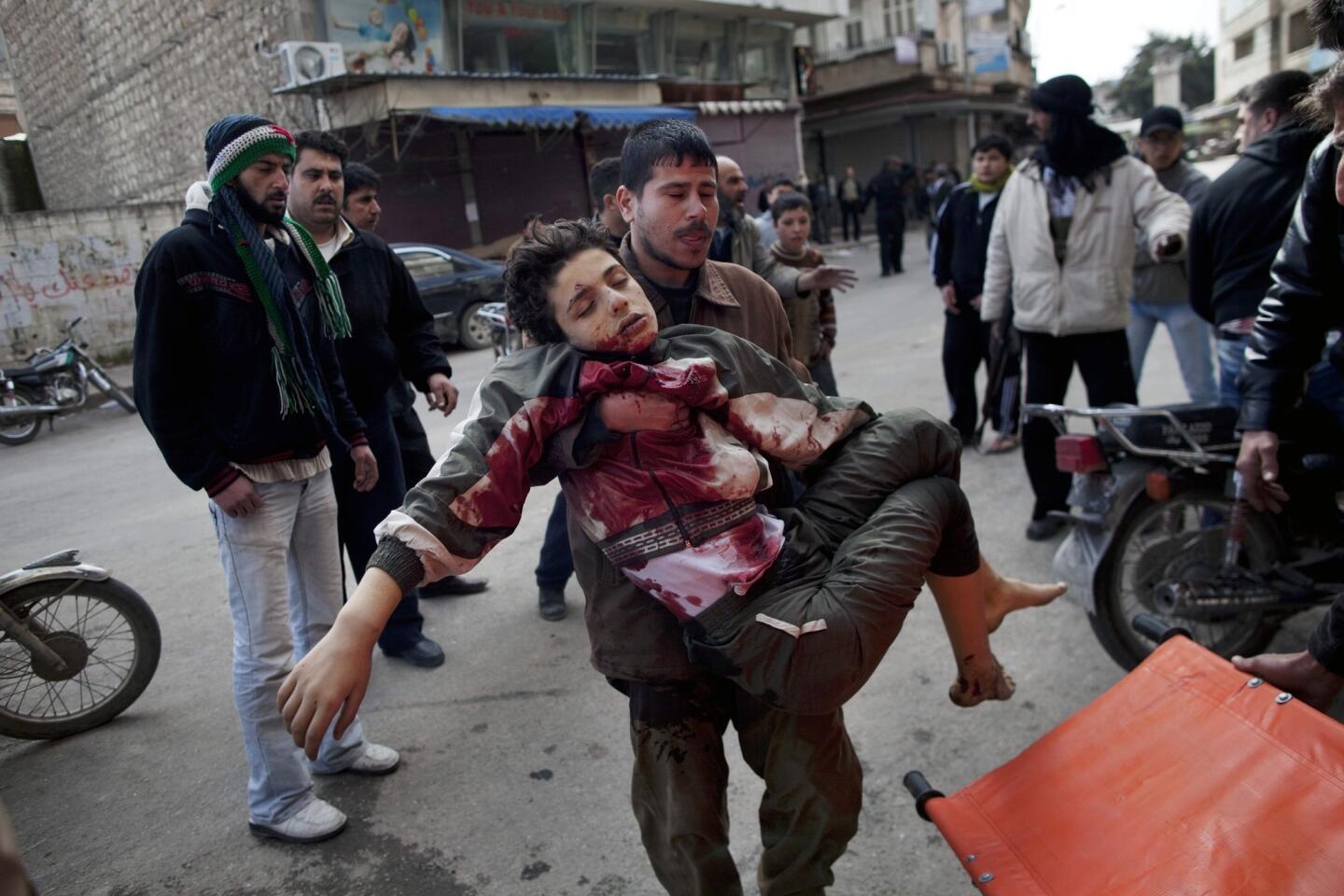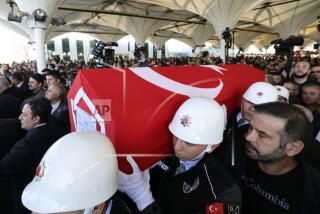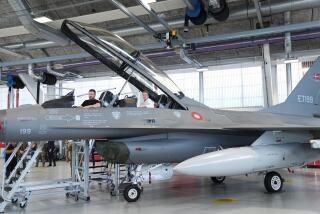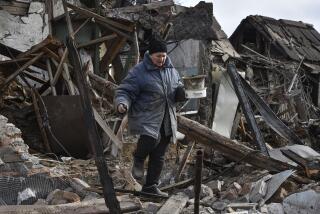Downing of Russian warplane shines a light on Turkey’s shadowy links to extremists
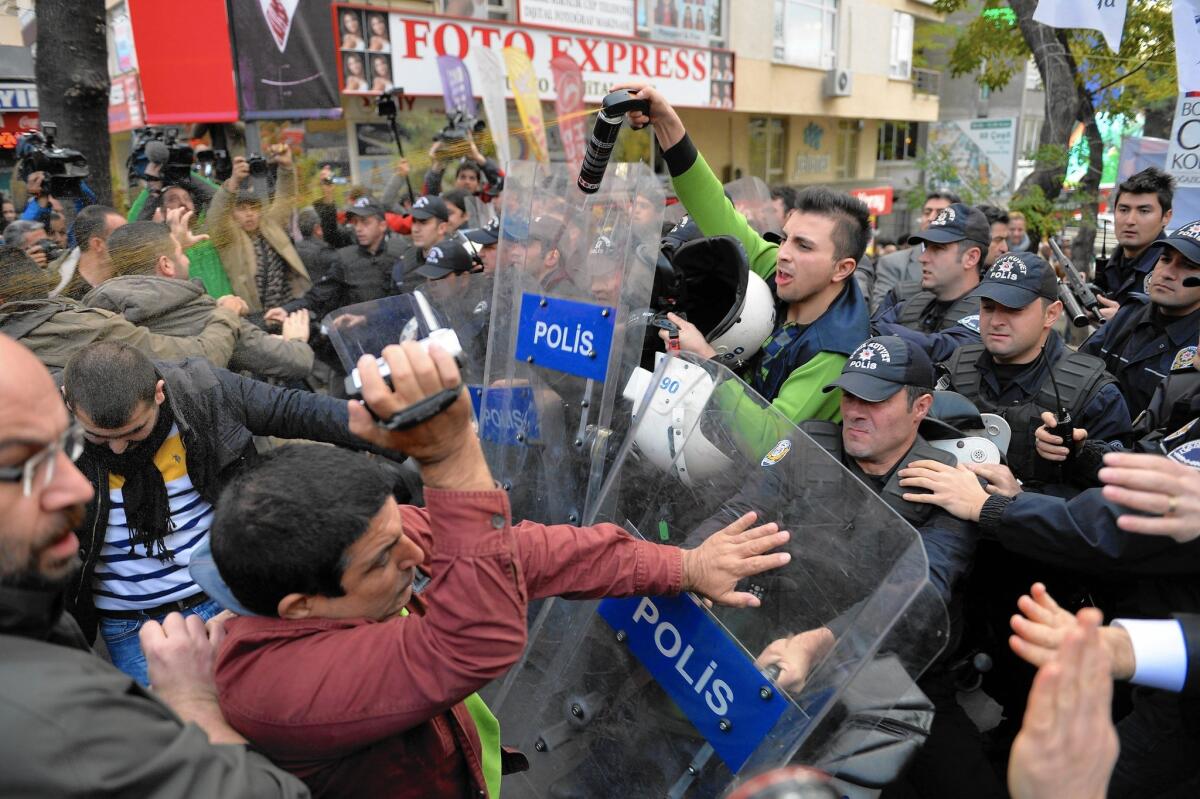
Reporting from BEIRUT — When Turkish F-16 fighter jets shot down a Russian warplane at the Turkish-Syrian border, it swung the spotlight back on the strategic region, long a focal point of conflict in the Syrian crisis.
It also focused attention on Turkey’s relationship with the Syrian rebel factions fighting to wrest control of the country from President Bashar Assad.
The Russian Su-24 bomber was shot down last week. Turkey said it had entered its airspace while on a mission to target Syria’s Turkmens, an ethnic minority with deep ancestral and linguistic ties to Turkey. The Kremlin insisted that the plane was over Syria, not Turkey.
Based in the region straddling Turkey’s Hatay province and Syria’s Latakia province, Turkmen rebel brigades have been among the groups seeking to overthrow Assad, a close Moscow ally. They have received training and arms from Turkish military bases near the border.
That support reflects a wider Turkish policy. Ankara has sponsored some of the Syrian opposition’s most prominent factions — including, according to critics, Al Qaeda-linked groups such as Al Nusra Front and Islamic State, although Turkey insists it backs only moderate insurgents.¿
“No country has been more important for the rebels than Turkey,” said regional expert Mouin Rabbani, speaking by phone from the Jordanian capital, Amman.
He contrasted the situation along Syria’s northern border with Turkey to that along the southern border with Jordan.
“The Jordanians were much more selective, while the Turks just opened the spigot on the assumption that the more open the border, the more support goes in, the faster Assad goes,” he said.
Before the civil war, relations between Syria and Turkey had been on the rise.
But in November 2011, as Syrian authorities violently put down largely peaceful antigovernment protests, Turkish Prime Minister Recep Tayyip Erdogan aligned himself with what he called the “glorious resistance” and said it was time for Assad to step down.
Since then, fighters and arms have regularly flowed between the two countries and Ankara has given weapons to the opposition and organized logistical support.
It was Turkey’s national intelligence agency, known as MIT, that first organized Syrian military defectors into Western-backed groups under the banner of the Free Syrian Army.
Free Syrian Army factions still convene on Turkish soil in the Joint Operations Center, a CIA-led intelligence hub that gives vetted rebels training as well as U.S.-made TOW antitank missiles used to destroy Syrian army tanks and armored units.
Islamist groups, however, have benefited from Turkey’s pro-opposition policy as well.
In May, the Turkish daily newspaper Cumhuriyet published video from 2014 showing customs agents impounding a truck owned by the MIT.
The truck’s manifest said it was carrying humanitarian assistance for Syrians. Instead it was bearing a cache of ammunition and shells the newspaper said were destined for Islamist rebels.
The video’s release caused a furor. Erdogan vowed to prosecute Cumhuriyet, a threat he carried out Friday when authorities arrested two of the paper’s journalists on charges of espionage and aiding a terrorist organization.
Turkish assistance has been instrumental in empowering the Army of Conquest, a loose coalition of hard-line Islamist factions including Al Nusra Front, which seized control of Idlib province in March in an offensive backed by Turkey and Saudi Arabia.
Economic ties also have been forged between Turkey and rebel factions.
According to a 2015 United Nations study, two border crossings controlled by a faction of the Army of Conquest handle more than 300 trucks a day, a figure that exceeds prewar levels. The traffic yields an estimated $660,000 a day in revenue for the rebel group.
But it is Turkey’s shadowy connection with the militant group Islamic State that has caused the most concern.
The rise in 2012 of extremist factions such as Al Nusra Front and later Islamic State did nothing to change Ankara’s security stance.
Until last year, when Turkey yielded to international pressure and tightened controls on who could enter the country, bearded men sporting military-style backpacks and clothing were a common sight at the airports in Istanbul, Antakya and Gaziantep. From there, they would be whisked off to Islamic State safe houses near the border and then into Syria.
Questions have been raised about Erdogan’s hands-off strategy during Islamic State’s assault on the Syrian Kurdish town of Kobani last year.
The town was saved after an eleventh-hour bombing campaign by the U.S.-led coalition, but many saw the Turkish government’s recalcitrance as an effort to block the possibility of a Kurdish state being established in Syrian territories. Turkey has long fought a Kurdish insurgency within its borders and is adamantly opposed to the establishment of an adjacent Kurdish state.
Although Turkish warplanes did fly some sorties against Islamic State targets, they focused mostly on positions of the Kurdistan Workers Party in Turkey, Syria and Iraq. Turkey has been fighting the separatist group for almost 40 years.
Russia’s entry into the fray in September dealt a further blow to Turkey’s hope of ousting Assad.
In recent weeks, Russian jets had pounded Turkmen areas in Syria as pro-Assad forces engaged in land operations to regain control of the mountains in northern Latakia, an area long held by the rebels.
Days before the warplane was shot down, Ankara had sent a letter to the U.N. Security Council condemning the “intense aerial bombardment which reportedly included use of cluster bombs by the Russian air forces,” according to the Turkish state news agency Anadolu.
Rabbani said he suspects the downing was a Turkish attempt to stop attacks on rebel groups it considered its own. Russia, he said, wants to weaken Syrian rebel groups supported by Turkey, seal the Turkey-Syria border and quiet calls for Assad’s departure.
“I think it’s fair to conclude that it was these objectives that were in Turkey’s crosshairs,” he said.
Bulos is a special correspondent.
ALSO
Fortune struck for these Syrian migrants, but can they make it in California?
Israeli court convicts two teens in grisly 2014 killing of 16-year-old Palestinian
How Obama learned from ‘a mess’ of a climate deal to forge a new agreement in Paris
More to Read
Sign up for Essential California
The most important California stories and recommendations in your inbox every morning.
You may occasionally receive promotional content from the Los Angeles Times.
